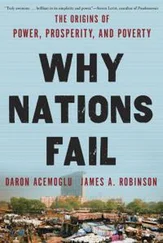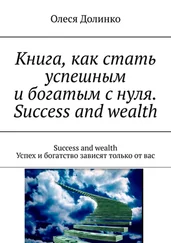Adam Smith - Wealth of Nations
Здесь есть возможность читать онлайн «Adam Smith - Wealth of Nations» — ознакомительный отрывок электронной книги совершенно бесплатно, а после прочтения отрывка купить полную версию. В некоторых случаях можно слушать аудио, скачать через торрент в формате fb2 и присутствует краткое содержание. Жанр: unrecognised, на английском языке. Описание произведения, (предисловие) а так же отзывы посетителей доступны на портале библиотеки ЛибКат.
- Название:Wealth of Nations
- Автор:
- Жанр:
- Год:неизвестен
- ISBN:нет данных
- Рейтинг книги:4 / 5. Голосов: 1
-
Избранное:Добавить в избранное
- Отзывы:
-
Ваша оценка:
- 80
- 1
- 2
- 3
- 4
- 5
Wealth of Nations: краткое содержание, описание и аннотация
Предлагаем к чтению аннотацию, описание, краткое содержание или предисловие (зависит от того, что написал сам автор книги «Wealth of Nations»). Если вы не нашли необходимую информацию о книге — напишите в комментариях, мы постараемся отыскать её.
Adam Smith's masterpiece, first published in 1776, is the foundation of modern economic thought and remains the single most important account of the rise of, and the principles behind, modern capitalism. Written in clear and incisive prose, The Wealth of Nations articulates the concepts indispensable to an understanding of contemporary society.
Wealth of Nations — читать онлайн ознакомительный отрывок
Ниже представлен текст книги, разбитый по страницам. Система сохранения места последней прочитанной страницы, позволяет с удобством читать онлайн бесплатно книгу «Wealth of Nations», без необходимости каждый раз заново искать на чём Вы остановились. Поставьте закладку, и сможете в любой момент перейти на страницу, на которой закончили чтение.
Интервал:
Закладка:
During the course of the last century, taking one year with another, grain was dearer in both parts of the United Kingdom than during that of the present. This is a matter of fact which cannot now admit of any reasonable doubt; and the proof of it is, if possible, still more decisive with regard to Scotland than with regard to England. It is in Scotland supported by the evidence of the public fiars, annual valuations made upon oath, according to the actual state of the markets, of all the different sorts of grain in every different county of Scotland. If such direct proof could require any collateral evidence to confirm it, I would observe that this has likewise been the case in France, and probably in most other parts of Europe. With regard to France there is the clearest proof. But though it is certain that in both parts of the United Kingdom grain was somewhat dearer in the last century than in the present, it is equally certain that labour was much cheaper. If the labouring poor, therefore, could bring up their families then, they must be much more at their ease now. In the last century, the most usual day-wages of common labour through the greater part of Scotland were sixpence in summer and fivepence in winter. Three shillings a week, the same price very nearly, still continues to be paid in some parts of the Highlands and Western Islands. Through the greater part of the low country the most usual wages of common labour are now eightpence a day; tenpence, sometimes a shilling about Edinburgh, in the counties which border upon England, probably on account of that neighbourhood, and in a few other places where there has lately been a considerable rise in the demand for labour, about Glasgow, Carron, Ayrshire, etc. In England the improvements of agriculture, manufactures, and commerce began much earlier than in Scotland. The demand for labour, and consequently its price, must necessarily have increased with those improvements. In the last century, accordingly, as well as in the present, the wages of labour were higher in England than in Scotland. They have risen, too, considerably since that time, though, on account of the greater variety of wages paid there in different places, it is more difficult to ascertain how much. In 1614, the pay of a foot soldier was the same as in the present times, eightpence a day. When it was first established it would naturally be regulated by the usual wages of common labourers, the rank of people from which foot soldiers are commonly drawn. Lord Chief Justice Hales, who wrote in the time of Charles II, computes the necessary expense of a labourer's family, consisting of six persons, the father and mother, two children able to do something, and two not able, at ten shillings a week, or twenty-six pounds a year. If they cannot earn this by their labour, they must make it up, he supposes, either by begging or stealing. He appears to have inquired very carefully into this subject. In 1688, Mr. Gregory King, whose skill in political arithmetic is so much extolled by Doctor Davenant, computed the ordinary income of labourers and out-servants to be fifteen pounds a year to a family, which he supposed to consist, one with another, of three and a half persons. His calculation, therefore, though different in appearance, corresponds very nearly at bottom with that of Judge Hales. Both suppose the weekly expense of such families to be about twenty pence a head. Both the pecuniary income and expense of such families have increased considerably since that time through the greater part of the kingdom; in some places more, and in some less; though perhaps scarce anywhere so much as some exaggerated accounts of the present wages of labour have lately represented them to the public. The price of labour, it must be observed, cannot be ascertained very accurately anywhere, different prices being often paid at the same place and for the same sort of labour, not only according to the different abilities of the workmen, but according to the easiness or hardness of the masters. Where wages are not regulated by law, all that we can pretend to determine is what are the most usual; and experience seems to show that law can never regulate them properly, though it has often pretended to do so.
The real recompense of labour, the real quantity of the necessaries and conveniences of life which it can procure to the labourer, has, during the course of the present century, increased perhaps in a still greater proportion than its money price. Not only grain has become somewhat cheaper, but many other things from which the industrious poor derive an agreeable and wholesome variety of food have become a great deal cheaper. Potatoes, for example, do not at present, through the greater part of the kingdom, cost half the price which they used to do thirty or forty years ago. The same thing may be said of turnips, carrots, cabbages; things which were formerly never raised but by the spade, but which are now commonly raised by the plough. All sort of garden stuff, too, has become cheaper. The greater part of the apples and even of the onions consumed in Great Britain were in the last century imported from Flanders. The great improvements in the coarser manufactures of both linen and woollen cloth furnish the labourers with cheaper and better clothing; and those in the manufactures of the coarser metals, with cheaper and better instruments of trade, as well as with many agreeable and convenient pieces of household furniture. Soap, salt, candles, leather, and fermented liquors have, indeed, become a good deal dearer; chiefly from the taxes which have been laid upon them. The quantity of these, however, which the labouring poor are under any necessity of consuming, is so very small, that the increase in their price does not compensate the diminution in that of so many other things. The common complaint that luxury extends itself even to the lowest ranks of the people, and that the labouring poor will not now be contented with the same food, clothing, and lodging which satisfied them in former times, may convince us that it is not the money price of labour only, but its real recompense, which has augmented.
Is this improvement in the circumstances of the lower ranks of the people to be regarded as an advantage or as an inconveniency to the society? The answer seems at first sight abundantly plain. Servants, labourers, and workmen of different kinds, make up the far greater part of every great political society. But what improves the circumstances of the greater part can never be regarded as an inconveniency to the whole. No society can surely be flourishing and happy, of which the far greater part of the members are poor and miserable. It is but equity, besides, that they who feed, clothe, and lodge the whole body of the people, should have such a share of the produce of their own labour as to be themselves tolerably well fed, clothed, and lodged.
Poverty, though it no doubt discourages, does not always prevent marriage. It seems even to be favourable to generation. A half-starved Highland woman frequently bears more than twenty children, while a pampered fine lady is often incapable of bearing any, and is generally exhausted by two or three. Barrenness, so frequent among women of fashion, is very rare among those of inferior station. Luxury in the fair sex, while it inflames perhaps the passion for enjoyment, seems always to weaken, and frequently to destroy altogether, the powers of generation.
But poverty, though it does not prevent the generation, is extremely unfavourable to the rearing of children. The tender plant is produced, but in so cold a soil and so severe a climate, soon withers and dies. It is not uncommon, I have been frequently told, in the Highlands of Scotland for a mother who has borne twenty children not to have two alive. Several officers of great experience have assured me, that so far from recruiting their regiment, they have never been able to supply it with drums and fifes from all the soldiers' children that were born in it. A greater number of fine children, however, is seldom seen anywhere than about a barrack of soldiers. Very few of them, it seems, arrive at the age of thirteen or fourteen. In some places one half the children born die before they are four years of age; in many places before they are seven; and in almost all places before they are nine or ten. This great mortality, however, will everywhere be found chiefly among the children of the common people, who cannot afford to tend them with the same care as those of better station. Though their marriages are generally more fruitful than those of people of fashion, a smaller proportion of their children arrive at maturity. In foundling hospitals, and among the children brought up by parish charities, the mortality is still greater than among those of the common people.
Читать дальшеИнтервал:
Закладка:
Похожие книги на «Wealth of Nations»
Представляем Вашему вниманию похожие книги на «Wealth of Nations» списком для выбора. Мы отобрали схожую по названию и смыслу литературу в надежде предоставить читателям больше вариантов отыскать новые, интересные, ещё непрочитанные произведения.
Обсуждение, отзывы о книге «Wealth of Nations» и просто собственные мнения читателей. Оставьте ваши комментарии, напишите, что Вы думаете о произведении, его смысле или главных героях. Укажите что конкретно понравилось, а что нет, и почему Вы так считаете.












